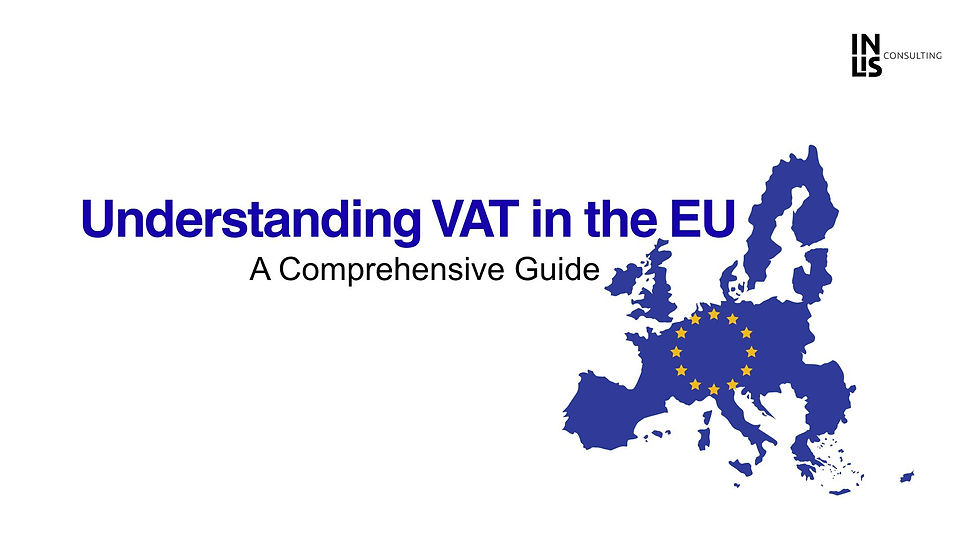NHR Capital Gains Exemption for U.S. Citizens
- INLIS Consulting
- Sep 26, 2025
- 4 min read
Portugal confirms that U.S. citizens under the NHR regime are exempt from Portuguese tax on capital gains from U.S. securities.

NHR Regime & Its Usual Capital Gains Treatment
Under the NHR (Non-Habitual Resident) regime, Portugal offers favorable tax treatment to new residents for a fixed period (typically 10 years). One of the features is that foreign-sourced income, including capital gains, may be exempt from Portuguese tax, but only if the foreign country (source country) has the right to tax that income.
In the case of most countries, that means if the country of origin could tax the gain, then Portugal will not do so under NHR.
However, the United States is unique because it taxes its citizens on worldwide income regardless of residence. That “right to tax” by the U.S. is enshrined in the U.S.–Portugal double taxation treaty (via a “saving clause”).
Because of that special clause, whether Portugal should or could tax capital gains of U.S. citizens under NHR was ambiguous for some time.
What Changed: Confirmation of the Exemption
According to legal analysis and reports from tax-advisory firms:
Portugal’s tax authorities have recently admitted that U.S. citizens under the NHR regime are exempt from Portuguese tax on capital gains from securities.
In a specific case involving a client of an advisory firm, a taxpayer successfully argued that the capital gains tax should not be applied, and the Portuguese authorities accepted this.
However, Portuguese tax software (the online tax return forms) may still automatically assume tax is due. Taxpayers might need to challenge that via correction, official claims, or even judicial routes.
Thus, while the exemption now has stronger backing, the mechanics of how to claim it in practice may still require extra steps.
Why U.S. Citizens Get This Special Exemption
Here’s the legal logic supporting the exemption:
Saving Clause in the U.S.–Portugal TreatyBecause the U.S. always retains the right to tax citizens on their global income, Portugal’s NHR law says that if the foreign country may tax the gain, then Portugal will not tax it under NHR. In the U.S. case, that “may tax” condition is clearly met.
Dual Right Doesn’t Mean Double. The Portuguese law’s NHR framework was written to grant an exemption when a foreign jurisdiction has taxing authority. The treaty with the U.S. already gives that authority, so the Portuguese interpretation is that Portuguese taxation should be prevented for that income.
Court / Administrative Precedents, a recent case where a U.S. citizen was allowed the exemption, helps solidify the interpretation, even though Portuguese courts do not follow strict precedent the same way as in common law systems.
Thus, U.S. citizens in Portugal under NHR now have clearer support to argue for exemption of capital gains taxation in Portugal on their U.S. securities.
Example Scenarios
Scenario | Asset & Gain | Portuguese Tax under NHR Before Confirmation | Portuguese Tax After Confirmation | U.S. Tax (No Change) |
U.S. citizen holds U.S. stocks | Gains of US$100,000 from sale of shares | Tax may have been assessed by Portuguese authorities | Exempt in Portugal under NHR | Still taxed in the U.S. on gains (as per U.S. capital gains rules) |
Large portfolio sale | Gains US$500,000 from U.S. equities | Risk of Portuguese capital gains tax | Now likely exempt under NHR for U.S. citizens | U.S. taxes applicable under U.S. rules |
In effect, this means that for many U.S. citizens under NHR, capital gains on foreign securities (in this case from U.S. markets) will not be taxed by Portugal — only the U.S. tax obligations remain.
What You Must Do (and Watch Out For)
Despite the favorable development, claiming this exemption is not always automatic. Here are key steps and caveats:
Declare the Gains Correctly on Portuguese Return
Even if exempt, capital gains must typically still be declared. But you’ll need to assert the exemption under NHR and point to the treaty and the Portuguese tax authority acceptance.
Tax Portal / Online Forms: The Portuguese tax return software may not recognize the exemption by default and may calculate tax on gains. You may need to file an amendment, attach statements, or pursue appeals.
Maintain Good Documentation records of purchase, sale, calculations, proof you were under NHR status, correspondence, official rulings, etc.
Timing & Residence Status Must Be Valid: You must correctly qualify for NHR (register on time, maintain residence, meet required conditions). If NHR is invalid or expired, the exemption may not apply.
Annual Challenges May Be Necessary: Because the software or first assessments may still apply tax, some taxpayers may need to dispute or litigate the tax assessment in individual years.
Consult a Professional: Given the complexity and evolving nature of this rule, you should work with a cross-border tax attorney or advisor to file properly and defend your position if necessary.
Summary
Portuguese tax authorities have now confirmed that U.S. citizens under the NHR regime are exempt from Portuguese tax on capital gains from U.S. securities.
This aligns with the logic of the NHR law and the U.S.–Portugal treaty’s saving clause.
The U.S. still retains its right to tax those gains under U.S. law; Portugal will not double-tax those gains under this exemption.
However, the exemption may require proactive claiming, careful filing, and potentially challenges to incorrect tax assessments.




Comments